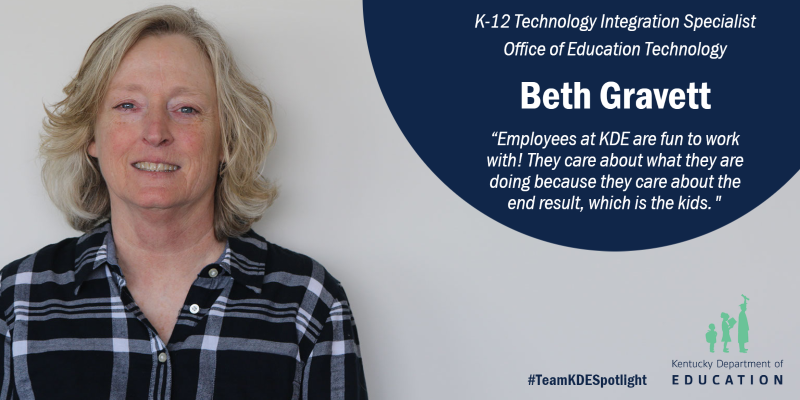
Christie Biggerstaff’s career goals have always been dedicated to Kentucky’s education system and helping students achieve success.
She began as an elementary education student at Western Kentucky University and then began her professional career as a 4th- and 5th-grade reading teacher in Monroe County.
In the 20 years prior to joining the Kentucky Department of Education, she served as an assistant principal, a principal and her district’s instructional supervisor.
“What drives me is having the opportunity to change the course of a child’s life for the better,” said Biggerstaff.
In July of 2022, she transitioned from working in education at the district level to the state level by becoming the director of early literacy in the Kentucky Department of Education’s (KDE’s) Office of Teaching and Learning.
At the same time, the Read to Succeed Act, Senate Bill 9 (2022), was signed into law.
“The Read to Succeed Act has the opportunity to change the literacy landscape in Kentucky for the better, and I am thrilled to be part of that,” Biggerstaff said. “Because the director of early literacy position works directly with the implementation of the law, I knew I would have the chance to support districts and schools, and positively impact the lives of Kentucky students. The gift of literacy is one that will impact their entire lives. I am passionate that all Kentucky students receive that gift.”
As the director of early literacy, she collaborates with the assistant director of early literacy, five state regional literacy directors and 25 state literacy coaching specialists. This new early literacy team will support districts and schools in the implementation of the Read to Succeed Act through the implementation of a new literacy coaching model. The literacy coaches will support building leaders, classroom teachers and interventionists in meeting the diverse needs of early readers with the goal of seeing increased student success in literacy.
As part of the requirements of the Read to Succeed Act, superintendents select and implement valid and reliable universal screeners and diagnostic assessments to determine students who are at risk for not reaching proficiency. If at risk, students are then placed on a Reading Improvement Plan to receive targeted instruction, intervention and progress monitoring to accelerate their learning toward proficiency.
“Early detection and intervention are key to ensuring our students are set up for success,” Biggerstaff said. “We also want to switch the focus from intervention to prevention. In order to do this, students must receive high-quality Tier 1 instruction with high-quality instructional resources (HQIRs).”
Biggerstaff and the early literacy team actively seek opportunities to support district leaders and other educational stakeholders in implementing important instructional shifts in reading for the good of teachers, K-3 students and literacy education across the Commonwealth.
“Working with districts and schools to implement the Read to Succeed Act, literacy HQIRs and the new literacy coaching model is an absolute privilege,” she said, “but we also view our work as an enormous responsibility and access to evidence-based literacy instruction a moral imperative.”
When Biggerstaff isn’t working on early literacy initiatives, she enjoys traveling and hiking with her husband, Kirk, and their three children.




Leave A Comment